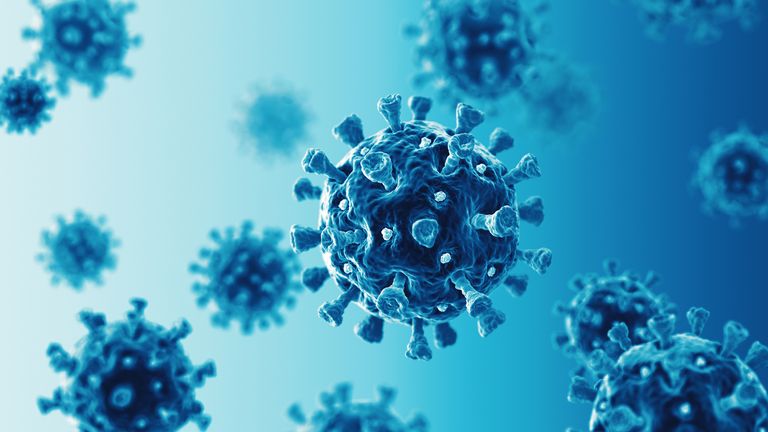COVID-19: Mouthwash can kill coronavirus within 30 seconds, study finds
Mouthwash is able to kill COVID-19 within 30 seconds of exposure to it in a laboratory, a scientific study has found.
These preliminary findings, which are yet to be peer reviewed, come ahead of a clinical trial investigating whether over-the-counter mouthwash can reduce the levels of coronavirus in a patient’s saliva.
The research, which was conducted at Cardiff University, found that mouthwashes containing 0.07% of the ingredient cetypyridinium chloride (CPC) showed “promising signs” of reducing COVID-19.
These findings support another recently published study which identified that CPC-based mouthwashes are effective in reducing the viral load of coronavirus.
Scientists conducted tests in a laboratory mimicking the conditions of a person’s nasopharynx and oropharynx passages, using mouthwash brands such as Dentyl.
A 12-week clinical trial at the University Hospital of Wales will now help determine the effectiveness of mouthwash in reducing the COVID-19 viral load in patients’ saliva.
Dentyl will be the only UK mouthwash brand used in the trial, and the findings will be published in early 2021.
:: Subscribe to the Daily podcast on Apple Podcasts, Google Podcasts, Spotify, Spreaker
Professor David Thomas, from Cardiff University who is leading the clinical trial, said: “Although this in-vitro study is very encouraging and is a positive step, more clinical research is now clearly needed.
“We need to understand if the effect of over-the-counter mouthwashes on the COVID-19 virus achieved in the laboratory can be reproduced in patients, and we look forward to completing our clinical trial in early 2021.”
Dr Nick Claydon, a specialist periodontologist, said the research was “very valuable”.
He said: “If these positive results are reflected in Cardiff University’s clinical trial, CPC-based mouthwashes such as Dentyl used in the in-vitro study could become an important addition to people’s routine, together with hand washing, physical distancing and wearing masks, both now and in the future.”
Source: Read Full Article



